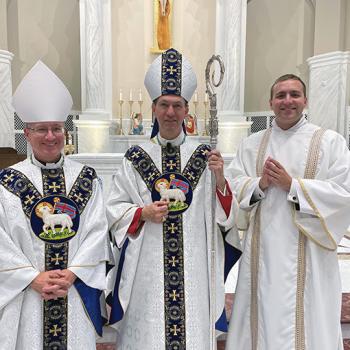The book of Psalms is one that carries such a range of genre and emotion. Within its pages we have prophecy, such as Psalm 22 all the way to repentance in Psalm 51. However, the book starts off with a foundational proclamation. In Psalm 1:1 we read, “Blessed is the man who walks not in the counsel of the wicked, nor stands in the way of sinners, nor sits in the seat of scoffers” (ESV-CE). For purposes of this study the Hebrew noun ‘esher which is the first word of this Psalm, will be examined.

Psalm 1:1 and Blessed
The Hebrew word from which the English word for “Blessed” is derived from is אָשַׁר .
This Hebrew word, when transliterated, is ‘ashar which is most translated as “Blessed”. There are a few other meanings depending on the context in which it is used.
Usage of the Hebrew Word
The word used at the beginning of Psalms is the masculine noun ‘esher. It is used as “Blessed” 27 times in the Old Testament and is used as “Happy” 18 times[1]. One of the instanced where an inspired writer uses it the same way is this Psalm is in 2 Chronicles 9:7. It is once again used at the beginning of the passage and denotes one being full of happiness[2].
Both passages are projecting strong emotion. In Psalm 1:1 the psalmist exclaims “Oh, the happiness” of one whom does not do these things. The same goes for the passage from 2 Chronicles as the inspired writer exclaims happiness about those who want to hear the wisdom of God. In Isaiah 30:18b the word is used at the end of the passage. That passage of scripture states, “for the Lord is a God of judgment: blessed are all they that wait for him”.
Though it is towards the end of the passage, the meaning is similar but with a subtle difference. The passage on Psalm one described man walking with the Lord on this earth. He is blessed because he runs from sin and strives to live a good life. The passage in Isaiah varies as it is a precursor to a messianic promise. The people are blessed when they put their faith in the Lord and is accompanied by repentance[3].

“Blessed” and English Variations
Though the word means “blessed” and “happy” there are a few variations. Some of these variations are to go, to bless, walk the way of understanding, and blesses[4]. Blessed and happy are the main translations and used that way about 45 times.
Negative Context of Psalm 1
Context is crucial when interpreting any word in scripture. Psalm 1 is the only place where a negative approach is used to get the point across. Blessed is the man who isolates himself from sinners, does not follow their ways, and concentrates on the ways of the Lord. He is looking to God and strives to live a morally upright life[5].
The word occurs mostly in Psalms and Proverbs. Its occurrence in wisdom literature is not at all surprising as they deal a great amount with morality. Through the usage in various books in the Old Testament it equated “blessed” with following the ways of the Lord. If one has faith in the lord he is also blessed, or happy though it may not be in this life.
In conclusion the placement at the beginning of the Psalms is important. It lays the foundation for what the Psalms will further discuss. Following the ways of the Lord, having unwavering faith, and repentance for sin. These are the characteristics of the blessed man that the Psalm describes.
Works Cited
[1] Wilhelm Gesenius and Samuel Prideaux Tregelles. Gesenius’ Hebrew and Chaldee Lexicon to the Old Testament Scriptures, Gesenius Hebrew and Chaldee Lexicon to the Old Testament Scriptures (Bellingham,WA: Logos Bible Software, 2003), 127.
[2] Robert Jamieson, A. R. Fausset, and David Brown, Commentary Critical and Explanatory on the Whole Bible (Bellingham,WA: Logos Research Systems,, 1997), 346.
[3] James E. Smith, The Major Prophets, Old Testament Survey Series (Joplin, MO: College Press, 1992), 97.
[4] R. Laird Harris, Gleason L. Archer Jr., and Bruce K. Waltke, eds., Theological Wordbook of the Old Testament (Chicago: Moody Press, 1999), 80.
[5] H. D. M. Spence-Jones, ed., Psalms, vol. 1, The Pulpit Commentary (London; New York: Funk & Wagnalls Company, 1909), 1.













